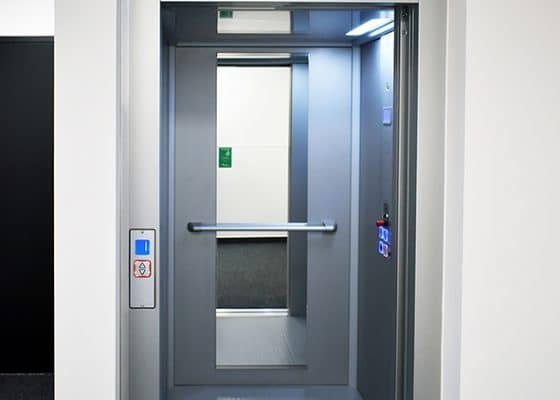
Rehab vs. Detox: What Should You Know
Addiction is classified as a mental illness and has been declared a public health crisis in the US. It is a compulsive need for and use of a habit-forming substance. Alcohol or drug addiction is not an overnight process, and many factors like genetic markers, socioeconomic status, pre-existing mental illnesses, and environmental influences can lead to it.
There are four stages of addiction, namely experimentation, regular use, high-risk use, and full-blown addiction. According to the professionals within this field, the first two stages do not always lead to addiction. However, third-stage individuals have a high chance of becoming dependent on the substance to the point it affects their quality of life as well as physical and mental health. Understanding these stages is crucial for identifying an addiction problem in its initial stages.
Addiction, at any stage, can be challenging to overcome. If left untreated, this disorder can destroy the lives of not only the addicts but also everyone related to them. Therefore, it is crucial to seek out professional help and get treatment.
Various rehabilitation centers across the US provide addiction treatment options for everyone and at all levels of addiction. In Florida, Delphi Health Group offers affordable treatment options and is dedicated to treating the root of addiction, ensuring lifelong sobriety and helping patients recover with minimal chances of relapses.
Addiction treatment consists of two processes, namely rehab and detox. They are two different processes and are equally crucial for a successful treatment.
In this article, we will discuss both these processes to help you understand why successful recovery involves both.
Table of Contents
ToggleDetox: Mentally and Physically Preparing for the Treatment
Detox is short for detoxification. It is the first step of addiction treatment, and its goal is to prepare the mind and body for treatment. It is a process of removing and cleansing your body and brain from any toxic/addictive substances. Addiction changes the way the brain works by altering the memories, decision-making skills, and cognitive abilities of the brain. Therefore, it is crucial to remove all traces of a drug from the body before rehab. Your medical and clinical personnel can be your primary source of support during this process. On average, it can take from 3 to 10 days.
The benefits of detox include;
- Cleanses the body of toxins
- Reduces pain
- Helps manage withdrawal symptoms
- Strengthens the immune system
- Lessens addictive cravings
- Helps reclaim your control over your behavior
- Lowers stress and anxiety levels
- Helps regain physical health
Detox guides patients through withdrawal, which is a process in which your mind and body adjust to the new normal that is the absence of the addictive substance. Withdrawal can be a strenuous process that can even lead to medical complications.
Several withdrawal symptoms can be potentially deadly, like trouble breathing, seizures, irregular heartbeat, vomiting, and high blood pressure. Therefore, avoid detoxing at home without medical supervision.
Rehab: Reclaiming Your Mind and Life
Rehab, or rehabilitation, focuses on the health of your mind. The goal of rehab is to encourage the patients to develop new habits and a new lifestyle to encourage and maintain sobriety. Rehab can last from 30 to 90 days on average. However, in severe cases, it may take around 120 days. There are different types of rehabs out there. Some are basic ones that are there purely to get people off whatever they are addicted to, whilst there are others who are a bit more of a luxury. Just take a look at Jewel City Treatment Center a luxury rehab los angeles facility. This one might just be the perfect fit for those who need that extra bit of help.
Rehab trains your mind to resist cravings by practicing healthier coping mechanisms and helps reduce the chance of relapse. In rehab, your main sources of support include your counselor, therapist, peers, and mentors. It focuses on your future as it helps you develop new behavior patterns.
Behavioral therapies are employed during rehab, which encourages the patients to explore and talk through the pain. Some commonly employed behavioral therapies include;
Cognitive-behavioral therapy: It helps you develop healthier thinking habits.
Dialectical-behavioral therapy: It enables you to handle stress, manage emotions, and improve your relationship with others. It essentially teaches you to live in the moment.
Additional activities that can help you regain control of your life may include;
- Meditation
- Counseling
- Life-skills training
- Holistic therapy including, art, music, and equine therapy
- Sober adventures
- Case management support for employment, education, and legal concerns
- Family, group, or individual therapy sessions
- Group activities
- Peer support groups
There are several types of rehab, however, the two common plans are as follows;
Inpatient rehab requires you to live and receive treatment at a rehabilitation facility. It allows patients to recover in a distraction-free environment while forming deep bonds with fellow patients. However, this also means more time away from family and friends during a critical time of your life.
Outpatient rehab requires you to attend multiple daily or weekly recovery programs at your nearest addiction treatment facility. It allows you to carry on with your daily life while getting treated. However, this is not the right approach for an individual who is in the initial stages of the treatment and may require higher levels of support.
Rehab primarily focuses on your holistic health. It focuses not only on your mental and physical health but also on your social needs, creativity, and spiritual well-being. Family visits are encouraged during rehab to help patients develop healthier relationships. In rehab, you are essentially reborn as it prepares you for life beyond the treatment by offering after-care services and alumni program activities.
The Wrap Up
Addiction can ruin lives and shouldn’t be left untreated. Therefore, it is crucial to identify it and get treated by a professional at a reputable addiction rehabilitation center. The treatment involves two different processes, rehab and detox. Both are equally important to ensure successful treatment and avoid relapse.
Detox purifies your body by removing all toxins from it. It is a physically challenging stage and must be supervised since drug withdrawal symptoms can be fatal. You may receive support from your medical personnel but, no family visits are allowed during this time.
Rehab is the next step in the treatment that helps heal your mind by encouraging you to develop healthier thinking habits and coping mechanisms to ensure a sober lifestyle and reduce the chances of relapse. Your therapists, counselors, peers, family, and friends can become your source of support during this process.
Hopefully, this article has helped you understand the difference between detox and rehab and why they are equally important for a successful treatment.


